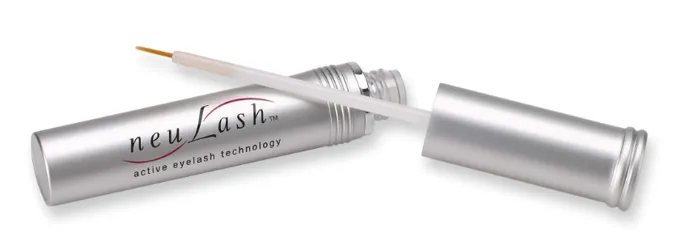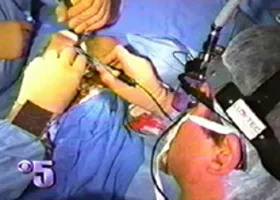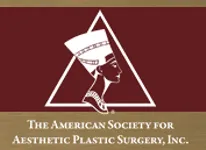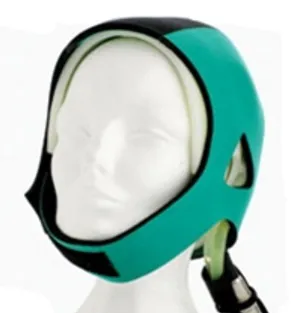
Fat Melting Lipodissolve Proves Extremely Popular Despite Lack Of FDA Approval
Lipodissolve Proves Extremely Popular Despite Lack Of FDA Approval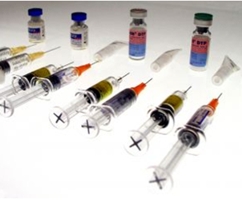 Lipodissolve is currently considered an experimental treatment.
Lipodissolve is currently considered an experimental treatment.
It is not approved by the FDA. Clinical studies in the United States that look at the safety and efficacy of lipodissolve are under way. Some medical practices that offer lipodissolve are also working toward establishing the right protocols for the procedure.
Depend upon who you talk to, some patients have had very good results and others have not. There are a lot of variable involved in the treatments.
Losing Fat - Inches Versus Pounds
The obvious difference between liposuction and lipodissolve is that the former is a surgical procedure while the latter, which involves a series of injections, is not. Lipodissolve involves a series of medicated injections that may melt away small, localized areas of fat, but not large areas.
Plastic surgeons who do both say people who want just a bit of body contouring are lipodissolve candidates, while those who want to lose bigger fat deposits probably need liposuction. Lipodissolve is inches, not pounds, while liposuction is pounds, not inches.
During the lipodissolve procedure, your doctor injects the cocktail into the fat layers and connective tissue. The injection is relatively painless, with no need for anesthesia.
The medication produces a chemical reaction to dissolve localized areas of fat. Typically, benefits are seen within three weeks of the treatment. Several treatments, four to six weeks apart, are often required to produce the maximum result. There is no downtime after lipodissolve.
Not Right For Everyone
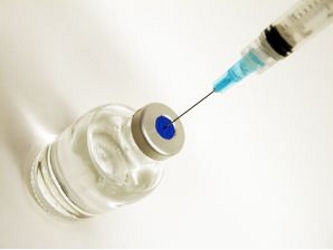 Not everyone is considered a candidate for Lipodissolve. Mesotherapy should not be used in pregnant women, nursing mothers, obese individuals or people with diabetes, autoimmune diseases, vascular (blood vessel) complications or infections of any kind.
Not everyone is considered a candidate for Lipodissolve. Mesotherapy should not be used in pregnant women, nursing mothers, obese individuals or people with diabetes, autoimmune diseases, vascular (blood vessel) complications or infections of any kind.
Before you consider lipodissolve or alternative spot reduction treatments such as Zeltiq, CoolSculpting or Zerona do the following:
•Review the doctor's credentials, education, training, type of certification held and the number of times that he or she has performed the treatment.
•Ask about the ingredients in the medication and the amount to be used in your lipodissolve procedure.•Ask the doctor to estimate the number of treatments required to achieve and maintain the benefit.
Recovery Times
Recovery is quicker after lipodissolve, Friedman says. Lipodissolve proponents say it is safer than liposuction because it eliminates surgical risks. They say that fat cells eradicated by lipodissolve migrate to the liver and then are excreted naturally. But skeptics note a lack of studies about lipodissolve's safety.
Lipodissolve is an increasingly popular and controversial treatment, touted as a non-surgical alternative to liposuction. It has been performed in Europe for many years. Lipodissolve treatments have been growing in popularity over the past few years.
Lipodissolve Ingredients
The ingredients used in lipodissolve may vary depending on the doctor and the area being treated. Lipodissolve practitioners inject small amounts of a chemical found in lecithin, better known as a food ingredient derived from soybeans, into pesky protrusions of pudge, aka love handles, muffin tops and bra rolls. Some doctors also add multivitamins, alpha lipid acid, enzymes and plant extracts to the cocktail.
Some doctors may also add nonsteroidal anti-inflammatory drugs, antibiotics and hormones to the mixture. There is no standard ingredient list. Many of the individual ingredients are not FDA-approved on their own, let alone as part of a chemical cocktail. These cocktails are typically prepared in compounding pharmacies that specialize in customizing formulations of drugs based on a doctor's orders.
Phosphatidylcholine/Deoxycholate
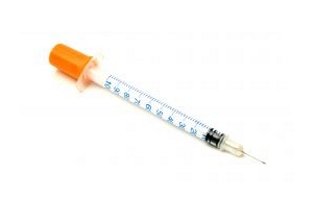 Phosphatidylcholine is a soybean extract, and deoxycholate is a bile derivative. Phosphatidylcholine is approved by the Food and Drug Administration (FDA) to break down blood fats that may increase risk for heart disease, but it is not approved for injection for any other purpose.
Phosphatidylcholine is a soybean extract, and deoxycholate is a bile derivative. Phosphatidylcholine is approved by the Food and Drug Administration (FDA) to break down blood fats that may increase risk for heart disease, but it is not approved for injection for any other purpose.
Phosphatidylcholine/deoxycholate (PC/DC), the compound generally used in lipodissolve shots, isn't Food and Drug Administration-approved (FDA). This is part of the ongoing controversy of this fat dissolving treatment.
Safety and effectiveness questions are common. Also, a key question is that if the fat cells are dissolved, where do they go? Some researchers suggest it migrates to other areas of the body with fat cells, including the arteries.
The amount of fat is so minuscule, however, that it likely causes no problems. Others believe the melted fat is naturally excreted from the body.
Side Effects?
Some health boards have received complaints from lipodissolve patients of pain, nausea, diarrhea, elevated liver enzymes and lumps at the injection site. Doctors acknowledge it's impossible to tell whether the side effects stem from the fat melting shots.
That's the problem. Some doctors worry about the long term effects of the product, because it has not been clinically studied. There might be some longer-range problems, but there's not enough data to support any claims. Some fans propose that if this product is as effective and safe as its proponents say, then it needs to be completely studied as part of clinical research.
Non-surgical aesthetics group says lipodissolve isn't a drug, but a treatment, and treatments aren't FDA-regulated. And, proponents note, compounding pharmacists, who don't need FDA approval, make lipodissolve.
The FDA disagrees. "These are unapproved drugs for unapproved uses," says a FDA spokesperson, noting the FDA is "investigating and evaluating" lipodissolve. Meanwhile "Consumers need to know that this is a buyer-beware situation."
Other reported side effects
Lipodissolve side effects include, according to the FDA:
•permanent scarring
•skin deformation•deep, painful knots under the skin in areas where the lipodissolve treatments were injected
Some report post-injection swelling. Others report that the shots are painful and the injections may burn.
The FDA is alerting consumers that
•The FDA has not evaluated or approved products for use in lipodissolve
•FDA is not aware of evidence supporting the effectiveness of the substances used in lipodissolve for fat elimination•The safety of these substances, when used alone or in combination, is unknown
•FDA is not aware of clinical studies to support medical uses of lipodissolve•In addition, FDA has reports of unexpected side effects in people who’ve undergone the lipodissolve procedure.
Too good to be true?
So far, though, the FDA has issued only one warning letter about lipodissolve. In 2003 Ayoula Dublin in New York City marketed phosphatidylcholine injections to "burn fat away," the letter said. The site claimed the shots were a nutritional supplement not regulated by the FDA. But supplements are swallowed, not injected, the FDA said, calling Dublin's product an unapproved new drug.
Dublin now sells lipodissolve pills. Dublin's website has this pitch: "These tablets contain the same active ingredients as the liquid injectable form that is applied to your problem areas. Instead of localized fat removal, you will get a complete body makeover."
Practitioners say they can't afford the multimillion-dollar clinical trials the FDA requires. The FDA issue is a very important one and the reality is that it's very expensive to take a new drug through the FDA approval process.
Kythera Biopharmaceuticals of Calabasas, Calif., conducted clinical trials to win FDA approval for an injectable to trim double chins. And the Aesthetic Surgery Education and Research Foundation received FDA permission to conduct a 20-patient trial comparing lipodissolve with placebo shots.
Plastic surgeous who specialize in injectible treatments are hopeful that someday the lipodissolve treatments will be officially approved by the FDA.
Preliminary Results In Study of Lipodissolve
The American Society for Aesthetic Plastic Surgery recently announced the preliminary results of its own small study of mesotherapy. Seven participants were injected with a standardized PC/DC cocktail in one half of their abdomen during up to four sessions that were spaced eight weeks apart. They were allowed to request treatment in the other side of their abdomen after the initial results were analyzed.
Study investigators used magnetic resonance imaging to measure any changes in fat thickness. Lipodissolve treatments banished one centimeter of fat on the treated side. Six of seven study participants said they saw a visible difference and opted to treat the other side of their abdomen.
Lipodissolve side effects included swelling, redness, bruising and some pain, but there were no serious side effects seen in this study. The next step is to follow participants for longer periods of time, and possibly study this treatment among larger groups of people.
Lipodissolve Costs
Costs for lipodissolve may range from $375 to $1,500 per treatment. Up to six treatments may be needed. The extent of treatment also makes a cost difference. For example, fat removal under the chin will cost less than removal of "saddlebags." The amount of medication required also depends on the area to be treated.
Summary
If you are considering Lipodissolve be sure to do your homework and when possible talk to others who have had the treatment.
More Information
Please follow me on Twitter at: http://Twitter.com/HairBoutique. I look forward to meeting new people from all walks of Twitter and learning from their Tweets. Visit us at Hairboutique.com located at: http://www.HairBoutique.com, on Facebook, MySpace and YouTube.
Thank you for visiting us at The HairBoutique Blog and for leaving your comments. They are very much appreciated. We apologize in advance but must remove any direct advertisements or solicitations.Social Media Network Information
Please follow us on Twitter at: https://Twitter.com/HairBoutique. I look forward to meeting new people from all walks of Twitter and learning from their Tweets.




